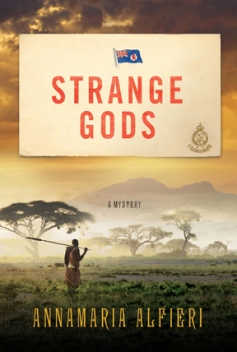Another “catch up” cross post from my Long Ago & Far Away blog:
Stephanie Dray’s Lily of the Nile, is an imaginative rendering of Cleopatra Selene’s formative tween years. Selene, daughter of the Cleopatra and Mark Anthony, was raised in the Roman household of Caesar Augustus after his triumph over her parents led them to commit suicide.
Rough start for a kid. But Dray’s Selene is no ordinary princess.
I usually resist anything suspect of girlishness but had picked up the book at the Historical Novel Society’s 2013 conference after hearing Ms. Dray talk about her work. Having recently read Wilbur Smith’s River God and The Quest, I figured I should get the last of my ancient Egypt stack taken care of. Although Lily of the Nile mostly takes place in Rome, the protagonist fits in my Egypt category.
I was pleasantly surprised at the unsentimental nature of Dray’s work and her ability to embed the historical context within an engaging story. I confess to an irresponsible lack of knowledge about the times and events so I was at Ms. Dray’s mercy for the facts but came away feeling better inform on all levels: people, events, culture and worldview.
Three areas of particular note:
1. Culture clash: I’d never given thought to how cold and rigid Roman culture must have felt to the conquered peoples. Selene’s Ptolemaic Egypt now seems the perfect foil to Augustus’ masculine authoritarianism.
And Dray’s representation of Isis worship in conflict with Roman religion was eye-opening. I’d always thought of Rome as primarily universalist – as long as the official gods were publicly honored. Dray makes it clear why the Romans might have seen Isis as a threat to their ordered social strata.
2. The Isis faith: Before reading Wilbur Smith’s stories mentioned above, I knew next to nothing about Isis or any of the Egyptian religions. In Lily of the Nile, Stephanie Dray does an excellent job of showing how the Isis religion may have contributed to the receptivity of Christianity and it’s eventual expression. Since Sunday School, I was taught that Rome’s Pax Romana paved the way for Christianity by facilitating the swift spread of ideas. I have some understanding of Hellenistic influence on the early church, and have a better-than-average awareness of other influences on the historical development of Christianity, but I was not aware of an active Egyptian religion contemporary with the birth of Jesus which preached love, appealed to the downtrodden and had a “Queen of Heaven” at the center. Okay, Isis also married her brother and included temple prostitution and magic in her cult. So there are plenty of differences. But after Dray’s portrayal of Isis it is hard to miss the universal tendency of human felt need for a Mother figure.
3. Dabbling in Fantasy: As with Wilbur Smith’s The Quest, Dray’s Lily of the Nile allows the magic of the worldview to manifest itself in the “real life” of the historical fiction. Maybe Smith’s The Quest prepared me for it here since I found it less disconcerting in Dray’s work. Possibly I was more jarred by it in The Quest because Smith’s earlier work, River God, with the same characters, did not blur the lines of genre. Suddenly, finding myself in a fantasy world threw me for several hundred pages. In reading reviews of The Quest and Lily of the Nile some readers are seriously put off by this genre mashup. I do not have a problem with it in principle – hey, we’re primarily telling fun stories here – as long as I feel prepared for it in some way. Since I don’t read back covers, synopses or reviews before reading, I take a bit of a risk when I venture in unaware. But I think that’s my own problem, not the writer’s, if there has been some hint beforehand.
I’d like to know what others think about this question. I love a story that goes deep into the worldview of the characters, but how do you feel about blurring the genre lines between historical fiction and fantasy? Historical fiction is fraught with plenty of debate already. (How much are you allowed to make up or change “history”?). I suspect some folks will want to keep the categories tight. I’m more inclined to let imaginations run wild as long as we all know we are reading fiction, in spite of my own experienced disconcertion. I do think the reader needs some kind of “heads up” though. How much of the supernatural should be there before labeling the book with a sub-genre?
Lily of the Nile: Recommended
If you would like to read story synopses and reviews for Lily of the Nile, check out the following links:
Goodreads
Amazon
I do plan to read Stephanie Dray’s next Cleopatra’s Daughter installment Song of the Nile.
But next up here is: Strange Gods by Annamaria Alfieri – Historical Mystery set in early 20th Century East Africa!






